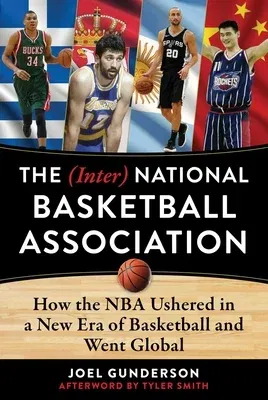For most of its existence, the National Basketball Association was a
league filled with (almost) all American-born players. Players from
overseas were looked at as less-skilled and not worth the risk.
Americans playing overseas were looked at as those who couldn't cut it
in the NBA, now playing in, essentially, the minor leagues of
basketball.
But that's no longer the case.
Today, a full one-third of those in the league were born overseas. Out
are the days of foreign-born players from unknown countries sitting at
the end of the bench. Now, they're the face of the franchise. A lottery
draft pick. They are carrying the game into the new millennium.
So the question remains: what brought about this change? How did the
skillsets of players born overseas become comparable to those in the
states?
In The (Inter) National Basketball Association, author Joel Gunderson
explores how the international game has become so integral to the growth
of the NBA. It's not, as former commissioner David Stern described at
the 1985 NBA Draft, "America's Game." No longer does Team USA expect to
steamroll through the Olympics.
With stars such as Giannis Antetokounmpo (Greece), Luka Doncic
(Slovenia), Joel Embiid (Cameroon), Kristaps Porzingis (Latvia), and
many more, the game of basketball has become a universal language. With
almost forty different countries represented in the National Basketball
Association today, the evolution of the sport has transcended across
international waters. Teams no longer shy away from players born abroad,
but instead welcome them with open arms. And for those who come over,
not knowing the language, unfamiliar with the American lifestyle, they
are now arriving with fluency in the most important language:
basketball.

